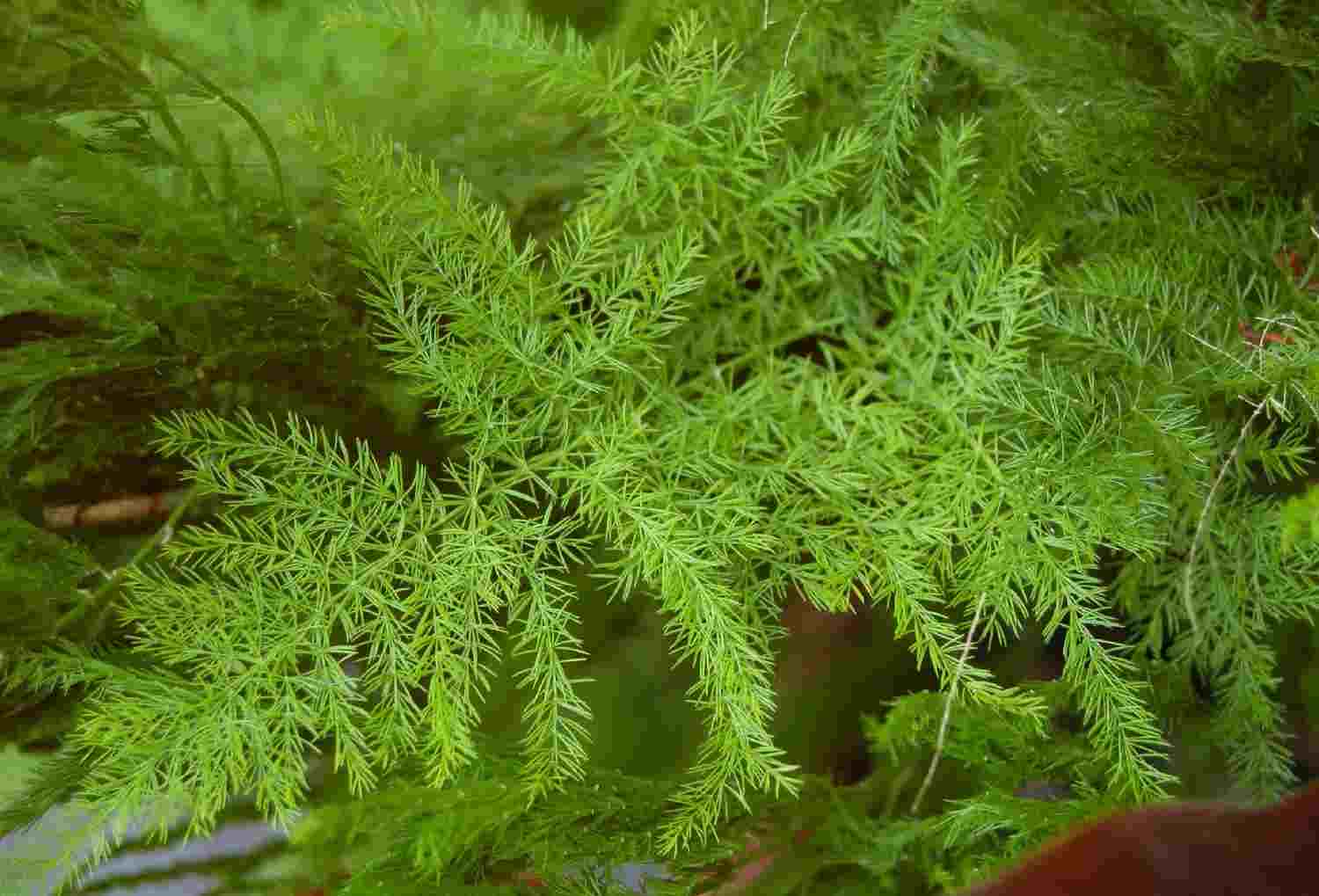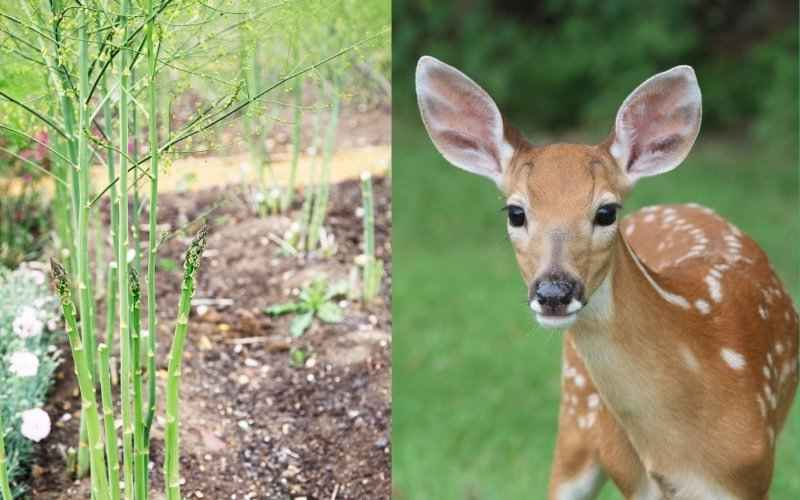Asparagus is a popular vegetable enjoyed by people all over the world. It is also a common plant in home gardens, where it can be grown easily and harvested for several years. However, asparagus is not just attractive to humans – it can also be appealing to deer, which can pose a problem for gardeners trying to protect their plants.

The Attractiveness of Asparagus to Deer
So, do deer eat asparagus? The answer is yes, deer have been known to eat asparagus in both wild and domestic settings. There are several reasons why asparagus may be attractive to deer.
First and foremost, asparagus is a tasty and nutritious food for deer. Asparagus is high in fiber, protein, and several essential vitamins and minerals, making it a valuable addition to a deer’s diet. Additionally, asparagus has a sweet and slightly bitter taste that may be appealing to deer.
Another factor that may make asparagus attractive to deer is its availability. Asparagus grows in a variety of climates and is typically found in areas where deer also reside. This means that deer may come into contact with asparagus plants while foraging for food, and if they find the taste appealing, they may return to the same plants for more.
The Impact of Deer on Asparagus Plantations
There is also evidence that deer will specifically target asparagus plants in gardens or fields. For example, some gardeners have reported seeing deer eating asparagus shoots or trampling plants in their gardens. Similarly, asparagus farmers may experience damage to their crops due to deer feeding on the plants. This can be a significant problem, as asparagus is a valuable commodity and any damage to the plants can result in economic losses.

Strategies for Protecting Asparagus from Deer
If you are a gardener or asparagus farmer and are concerned about deer damaging your plants, there are several strategies you can use to protect your asparagus from these pests.
One of the most effective methods for deterring deer from asparagus is fencing. A sturdy fence that is tall enough to prevent deer from jumping over can be effective at keeping them out of your garden. However, it is important to make sure that the fence is properly installed and maintained, as deer can be persistent and may try to find ways to get through or around the fence.
Another option is to use deer repellents, which are chemicals or products that are designed to deter deer from eating plants. These repellents can be applied to the plants or the surrounding area to make the plants less attractive to deer. Some repellents use strong odors or tastes to deter deer, while others use visual cues such as flashing lights or reflective materials.
In addition to fencing and repellents, you can also consider choosing plants that are less attractive to deer. Some plants are more resistant to deer feeding than others, so choosing these plants for your garden may help to reduce the risk of deer damage. For example, plants that have a strong odor or taste, such as herbs or plants with hairy or spiky foliage, may be less appealing to deer.
It is important to consider the specific needs and circumstances of your garden when choosing a method for protecting your asparagus from deer. Factors such as the size of your garden, the local deer population, and your budget will all play a role in determining the most effective and practical approach.

To Sum Up
In conclusion, deer can be a significant threat to asparagus gardens and plantations. While asparagus is an attractive and nutritious food for deer, the damage they can cause can be costly and frustrating for gardeners and farmers. By using strategies such as fencing, repellents, and plant selection, you can help to protect your asparagus from deer and ensure a successful harvest.
Frequently Asked Questions
Can deer eat cooked asparagus?
While it is unlikely that deer will have the opportunity to eat cooked asparagus, it is possible that they may eat raw asparagus if it is readily available in a garden or field. Asparagus plants produce shoots that are often tender and edible when they first emerge from the ground, and these shoots may be particularly attractive to deer.
Are there any plants that can be planted alongside asparagus to deter deer?
There are several plants that are known to be less attractive to deer and can be planted alongside asparagus to help deter them. Some examples include herbs such as basil, rosemary, and thyme, as well as plants with strong odors or spiky foliage, such as lavender, marigolds, and holly.
Can deer be trapped or hunted to reduce their numbers and prevent them from eating asparagus?
In some cases, it may be possible to reduce the local deer population through hunting or trapping. However, these methods should be approached with caution and only used in accordance with local laws and regulations. It is also important to consider the potential impact on the overall deer population and the ecosystem.
Is it possible to grow asparagus in an area with a high deer population?
Growing asparagus in an area with a high deer population can be challenging, as the plants are attractive to deer and may be at risk of being damaged or eaten. However, it is possible to protect asparagus plants from deer through the use of fencing, repellents, and plant selection.
If you are planning to grow asparagus in an area with a high deer population, it is important to carefully consider your protection strategies in order to maximize your chances of success.
Can deer transmit diseases to humans through asparagus consumption?
There is generally no risk of humans contracting diseases from deer through the consumption of asparagus. While deer can carry diseases that can be transmitted to humans through other means, such as ticks or direct contact, the risk of disease transmission through asparagus is considered to be low.
However, it is always a good idea to handle and prepare asparagus (or any food) in a safe and hygienic manner to minimize the risk of foodborne illness.
